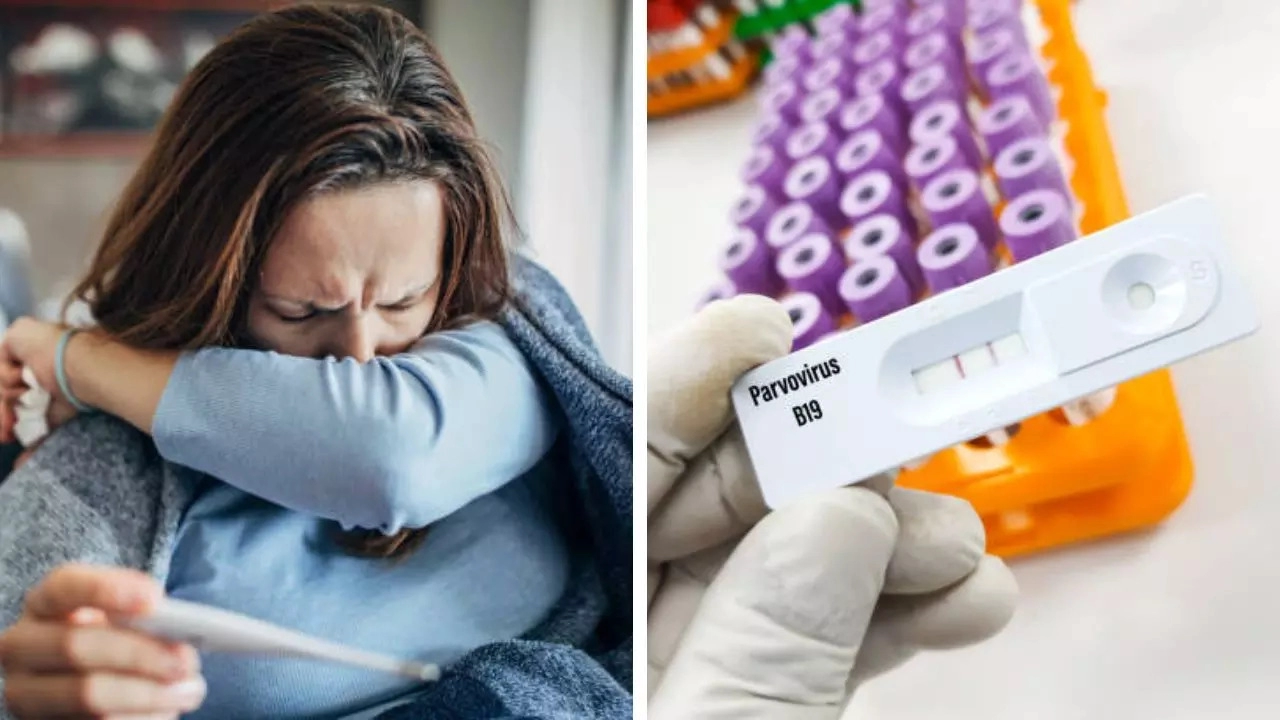Ashima Sharda Mahindra • 20 Aug 2024
What Is Parvovirus B19, The Highly Contagious Virus The CDC Has Warned About?

Parvovirus B19 is a common infectious disease that spreads from one person to another and most often results in no or very mild symptoms
The US Centers for Disease Control and Prevention (CDC) has issued a health advisory this week to doctors, healthcare providers, and the general public following a steep rise in cases of the highly contagious parvovirus B19. “In the first quarter of 2024, public health authorities in 14 European countries observed unusually high numbers of cases of parvovirus B19,” the CDC said in its alert. “Recently, CDC has received reports indicating increased parvovirus B19 activity in the US.”
Here’s what you need to know about the deadly virus, how it is spread and treated, and who is at high risk.
What is parvovirus B19?
Parvovirus B19 is a common infectious disease that spreads from one person to another and most often results in no or very mild symptoms. The virus also targets the cells that mature into red blood cells, causing a temporary stoppage of their production. The effect of this stoppage is only apparent in individuals who don’t produce normal red blood cells. According to doctors, parvovirus spreads through respiratory droplets which means coughing and sneezing by those who are both symptomatic and asymptomatic.
The infection causes the fifth disease, also known as “slapped cheek” disease – which is very common in school-aged children. Even though it affects people of all age groups, you are likely to have symptoms if you are immunocompromised or have problems producing normal red blood cells.
How does parvovirus spread?
Doctors say it is a highly transmittable virus. According to the CDC, 50 per cent are infected after a common exposure household exposure, while 20-50 per cent of students and staff are infected during school outbreaks. Antibodies from previous infections are thought to prevent and protect against future infection. CDC says by the age of 20, 50 per cent of adults have these antibodies, and by age 40, that number jumps to 70 per cent.
Parvovirus B19 infection can also be transmitted during pregnancy from the mother to the fetus and via blood and plasma transfusions, though transfusion-associated parvovirus B19 infection is extremely rare.
Doctors say pregnant women who become infected may be at increased risk for a miscarriage, although most are infected prior to pregnancy and are thus protected against infection.
Signs and symptoms of parvovirus infection
Signs and symptoms of a parvovirus B19 infection in children can be different than in adults. A few of these include:
- Swollen and painful joints
- Fatigue and extreme tiredness
- Low-grade fever
- Persistent headache
- Upset stomach
- Arthritis
- Gloves and socks syndrome which is less common and usually in adults
Also, many of those who contract parvovirus B19 do not exhibit any symptoms. Those with the symptoms experience them in two phases – one that begins about a week after infection - characterized by fever, muscle pain, sore throat, and fatigue, and the second which starts 7-10 days after phase one.
How is Parvovirus treated?
Doctors say parvovirus is usually self-limiting and it disappears on its own. For most people in good health, no treatment is necessary. However, drinking lots of fluids and getting enough rest is important. Most cases of fetal parvovirus B19 infection during pregnancy resolve without negative outcomes. However, there is a 5-10 per cent risk of fetal anemia or miscarriage when infection occurs in the mother between weeks 9 and 20 of pregnancy.
Get Latest News Live on Times Now along with Breaking News and Top Headlines from Health and around the world.